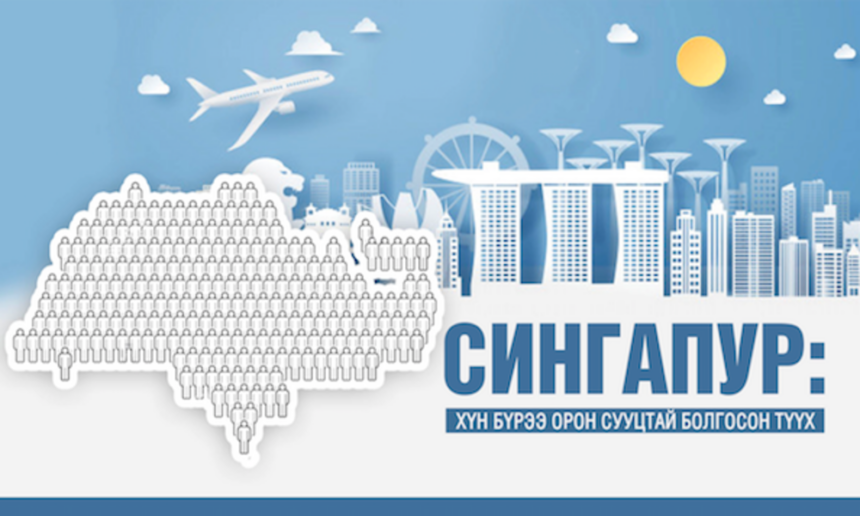Singapore is a city-state of 5.6 million people with a total area of 720 square kilometers, consisting of sixty small islands. It has the second highest population density in the world, with a GDP of $106,000 per capita, which is the third-largest in the world (IMF). Scientists are studying for the secret of how this country, which gained independence from the British colony in 1963, has grown from a poor, mosquito-infested village to the country with a highly developed industry and service sector, and with 160,000 transcontinental company’s headquarters during a single people’s lifetime. Everyone has their own comfortable housing, an average life expectancy of 84 years, and this country became a world leader in education, health and social protection.
Singaporean model of development
Singapore’s political, economic, and social system is unique. It appears to be like other democracies, with regular elections and multi-party involvement. However, only one party (The PAP – People’s Action Party) has always won an absolute victory since 1959. Hence, this country is considered a de facto one-party, authoritarian regime. Although the economy seems to be dominated by free market, more than 80 percent of the land is owned by the state (Singapore Land Authority), and 80 percent of the apartments are built, operated, and renovated by state-owned companies.
The secret of Singapore style is a Chinese-style civil service based on Confucianism, which prioritizes the society over the individual. The concept of a faithful and honest service to the public is at the heart of this doctrine. It is considered successful because today, 40 percent of the population are permanent foreign residents, and one-third of the population is of Chinese descent.
Since the civil service is merited and ethical (the country is ranked third in the world in terms of corruption), it is possible to make and implement social and economic policies and decisions quickly and efficiently. Known as the father of Singapore, the Prime Minister for 31 consecutive years since 1959, Lee Kuan Yew put it simply: “We employ the most talented people in the government”.
Furthermore, a merit, ethical civil service can be seen in the two major investment corporations that run Singapore’s economy. Temasek Holdings (as of 2019, worth $313 billion) and the government investment organization GIC (the world’s eighth-largest wealth fund, worth $390 billion) have successfully invested not only domestically but abroad. Hence, Singapore is a truly unique model of development.
Singapore’s housing policy
Singapore is a world leader in providing housing for its citizens. In 1959, 9 percent of the population was living in an apartment, but now it is more than 90 percent. In Singapore, about 80 percent of apartments are built, provided, and maintained by the Housing & Development Board (HDB). The HDB is currently building one million apartments. Moreover, the state-owned Central Provident Fund Board (CPFB) (which will be covered in the next article) provides access to housing.
The CPFB has been following these four principles in providing housing:
- Consistent income
- Preparedness
- Accessibility
- Variety. In addition to carefully planning the type and size of housing, the external environment, public use, and requirements, the CPFB provides all conditions and opportunities for citizens to buy. Their apartment is almost 30 percent cheaper than the private sector. If one has a pension account, he/she can get a mortgage loan with no down payment as well. The crucial part is to build the physical and social infrastructure of the town from the very beginning. The planning focuses on a holistic approach to people living with different incomes, including public transportation, quality education, and healthcare.
Just in 2017, the CPFB provided SGD 1.2 billion ($1 = SGD1.4) in housing grants for citizens. There are three types:
- Enhanced CPF Housing Grant
- Family Grant
- Proximity Housing Grant. If one is buying a new apartment for the first time, he/she can get a discount of up to $80,000 depending on the monthly income according to the following scheme below. For old apartments discount can be up to $120,000.
Fig. 1: Allowance for the first-time homebuyers
Creating community culture
Malays, Chinese and Tamil used to live separately in different parts of the island. In 1960, this situation was changed by the government policy. The needs and specific requirements of each nation have been taken into account in the design of new housing estates, apartment rooms, public areas, and facilities. Consequently, the campuses are provided with a kampong areas for neighbours to have fun together, exercise, swim, and playgrounds for children. Second, quotas are given to each nation and ethnic groups when allocating housing. Programs are implemented to establish neighbourly relations between them. Singapore is a newly formed nation.
Will the Singapore model be implemented in Mongolia?
When American political analyst Fareed Zakaria returned from Singapore for the first time, he was asked what he thought of Singapore’s development model. He replied: “There is no Singapore model, just Lee Kuan Yew”. He added: “if Lee Kuan Yew is in a developing country, they need to go the Singaporean way immediately”. Therefore, Singapore’s development model is a leader-dependent system.
Since Mongolia has chosen a democratic system that is debated and decided by people, our version of a “Lee Kuan Yew” should be a united, strong political party and its officially recognized leader. Today, such a leading political force has not been yet formed in Mongolia. However, through trial and error, such a political force can be created. In this process, democracy, human rights, freedoms, and personal responsibility will be further developed and strengthened and will be irrevocably planted in Mongolia.
As for the housing system, Singapore is not very suitable for us. The main reason is the land issue. In Singapore, the Land Acquisition Act of 1966 gave the state the right to repossess its citizens land for public use. With the implementation of this law, today the state owns more than 80 percent of the land. Thereby, it became the basis for the creation of a centralized system of public housing.
This is not possible in a democratic Mongolia, where land is privately owned and protected by law. We are very different from them in terms of population density, historical conditions, culture, customs, so this system is not directly suitable for Mongolia. However, Singapore’s development model, including urban planning and housing policy, has much to offer. Most importantly, it is possible to study and implement multiple measures to provide equal opportunities to citizens and provide them with affordable housing, especially rental housing.
Finally, democracies and authoritarian regimes will not succeed without a merit system of civil service.
2020.04.30
Trans. by Riya.T and Sungerel.U












